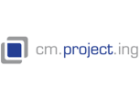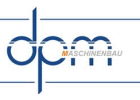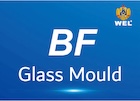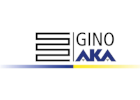Even wIth the previously overextended float glass market finally beginning to see light at the end of what has been a very dark tunnel recently regarding global raw materials supplies—specifically for this industry, sand—additional challenges remain, including shipping bottlenecks, port congestion, labor shortages, and more.
While all these factors contribute to a perfect storm of problems, grossly delayed glass shipments from international suppliers and manufacturers further exacerbate the resulting record-high wait times.
According to Hong Kong-based online shipping marketplace Freightos: “China-to-U.S. transit times for ocean freight reached 71 days door-to-door this month, up from 40 days two years ago.”
With these circumstances in mind, it's more prudent than ever to work with a fabricator that utilizes domestically produced float glass, especially if your project requires a tight deadline and additional customizations.
Below we’ll discuss the many benefits of a U.S.-based glass industry supply chain, including shorter lead times, fewer delays, and lower prices, among many others.
Shipping Delays & Port Bottlenecks
“The cost of containers has more than doubled in 12 months, causing the glass supplier to raise prices or have margin compression. The delays in receiving containers continues to lengthen, with limited availability on the ships, as well as congestion at the ports, due to limited labor to unload the containers when they arrive at the desired ports.” —
David Dillmeier, CEO, Dillmeier Glass Company
A U.S.-based float glass manufacturer circumvents already-extended wait times plaguing international shipping, as well as expensive tariffs and port congestion. According to online financial news hub Business Insider, the Port of Long Beach is experiencing a record-breaking backlog of cargo ships awaiting entry to unload.
Max Perilstein, founder and managing partner of glass fabrication industry consulting firm Sole Source Consultants, notes there are currently multiple variables to consider regarding international shipping.
“The biggest item is knowing who you are dealing with, and being able to get customer service,” he explains. “Time changes make it tough, as do overall communication hurdles. Then add in the disasters at the ports right now. I think Long Beach is out three months just to unload containers, and logistics is a mess. In addition, there’s volatility with tariffs and surcharges. So buying overseas becomes an art and a challenge, and it's not for everyone.”
David Dillmeier, CEO of Dillmeier Glass Company, identifies the increased costs of shipping containers as yet another hurdle when importing fabricated and float glass to the United States.
“The cost of containers has more than doubled in 12 months, causing the glass supplier to raise prices or have margin compression,” he shares. “The delays in receiving containers continues to lengthen, with limited availability on the ships, as well as congestion at the ports, due to limited labor to unload the containers when they arrive at the desired ports. Container ships are therefore being rerouted to U.S. ports that are less congested.”
Domestic Shipping Benefits
While domestic shipping enjoys shorter wait times and specialized logistics processes, it also leaves room for the most specific customizations. If a project requires a specialized system, design, or edging, for example, a U.S.-based fabricator can meet this—even within the tightest time frames.
“We have more creative freedom because we can take in raw glass from domestic float suppliers and manage inventory depending on the customer ship dates,” explains Dillmeier. “We are not waiting on delayed containers from overseas.”
Ensuring projects are successfully delivered is paramount. However, if an issue should arise, it can be resolved quicker when handled domestically.
“The ability for a U.S.-based fabricator to carry stock and cut glass for the customer’s orders as they come in, allows for the U.S. fabricator to offer shorter lead times,” continues Dillmeier. “When there is an issue with an order, U.S.-based fabricators can expedite the reworks or new orders to accommodate the customer’s needs.”
Competitive Pricing
Fabricators purchasing glass domestically don’t accrue container shipping costs, either—a huge advantage. Dillmeier expects overall pricing to eventually level off as ports begin to unclog and labor shortages even out.
“At some point, the supply will begin to meet the demand and prices for containers will decrease,” he shares. “While I do not see prices hitting their pre-pandemic levels anytime soon, the unloading ports should begin to see more labor available in the coming months. That should shorten the lead time for the containers to be unloaded and put on trailers.”


























